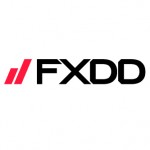Developing economies, otherwise known as emerging markets, are quickly becoming drivers of worldwide growth, according to leading Forex broker, FXDD. But should retail traders invest in emerging markets? FXDD cites the International Monetary Fund estimates that emerging markets will expand two to three times quicker than developed nations like the United States and Europe, as a reason for retail investors to consider investing in emerging market economies. In addition to growth, according to FXDD, emerging markets also present investors with a way to diversify their portfolios because they tend to perform differently than developed markets.
FXDD notes that the world’s largest economies such as the United States, United Kingdom, Canada and Europe tend to dominate the foreign exchange trading landscape. However, according to FXDD, interest in emerging market currencies such as the Chinese Yuan, Brazilian Real, Indian Rupee, and Russian Ruble has grown significantly in recent years. FXDD is a leader among online Forex brokers in offering emerging currency pairs to retail investors by offering more than ten emerging market pairs to FXDD retail traders. Retail traders know that FXDD offers access to emerging market currencies previously only available to large institutional traders. FXDD is among the first brokers to give retail traders first access to these fast-growing markets as they become influential players in the global economy.
FXDD defines an emerging market as a country with low to middle per capita income, but with social and business activity in a stage of rapid expansion and industrialization. FXDD notes that emerging market economies make up 80 percent of the world’s population and approximately 20 percent of the global economy. Emerging markets are often categorized as being in transition because their economies are frequently going through a process of evolving from a closed market economy to an open market economy, while building trust from lenders and trading partners around the world. Because emerging markets are often in transition, and thus not as stable as larger currencies, FXDD believes that investing in these markets presents an opportunity for investors looking to add risk to their portfolio. Emerging markets are often considered by traders and investors seeking higher returns, notes FXDD, because these economies regularly experience greater economic growth as measured by GDP. However, as with any investment product, FXDD recognizes that the higher the return, the bigger the risk.
Even though emerging market currencies are often more volatile than the currencies of larger economies, FXDD believes the return can be worth the risk, as emerging markets have outperformed the benchmark rates over the years. According to FXDD, emerging market currencies offer opportunities not only for large institutions and hedge funds, but also to retail traders now that they can participate in these markets. Emerging market currencies provide opportunities for both the novice and experienced trader, says FXDD. However, FXDD cautions traders and investors to define their risk parameters before entering emerging markets.
Emerging market currencies do not trade much differently than larger currency pairs. FXDD notes that even though there are some fundamental differences between them, the basics of currency trading still apply to trading emerging market currency pairs. Just as with the Euro, Yen and Pound, emerging market currencies such as the Brazilian Real, still react to monetary policy and economic output as well as geopolitical factors. Because of this, currency traders can use the experience they’ve gained trading large currency pairs and apply this knowledge to trade emerging market currencies.
According to FXDD, one primary difference between major currencies and their emerging counterparts is the amount of liquidity available at different times in the trading day. As with major currency pairs, FXDD notes that there are blocks of times during the trading day when market conditions encourage more active participation, and thus, increased liquidity. According to FXDD, the lower the trading participation is around the world, the less liquidity that is available. Lower liquidity typically leads to increased volatility, notes FXDD, and can also increase the bid/ask spread. Because of this, FXDD cautions people that are trading emerging currencies within tight time spans, that it may not be as easy to enter or exit these trades at a defined price. FXDD advises traders to learn the most active trading times for each individual emerging market pair before beginning to trade.
While emerging market currencies are moderately unknown compared to larger currency pairs, they present a compelling opportunity for both novice and seasoned Forex traders alike, says FXDD. Because these emerging markets react similarly to the large currency pairs, FXDD believes traders can take the knowledge they have about trading larger currencies, and can apply this experience to trading emerging currency pairs. However, FXDD notes that there are differences between these two types of currencies that a trader should understand before trading a live account. In spite of the differences, FXDD believes that trading emerging market currencies is worthwhile and allows retail traders to diversify their exposure to higher-growth economies around the world, previously reserved for large banks and hedge funds.

